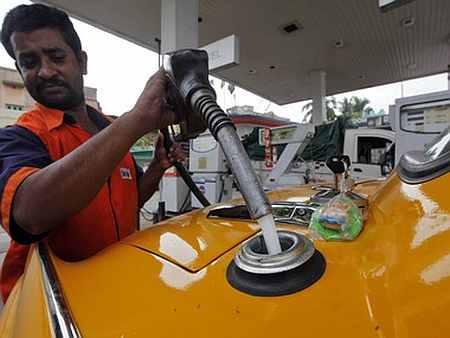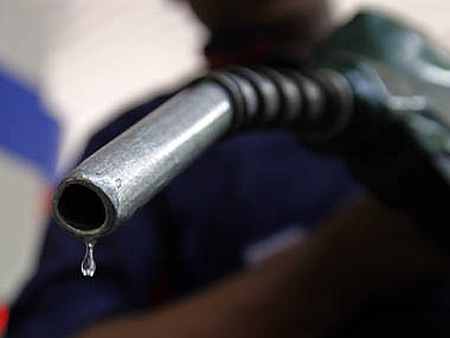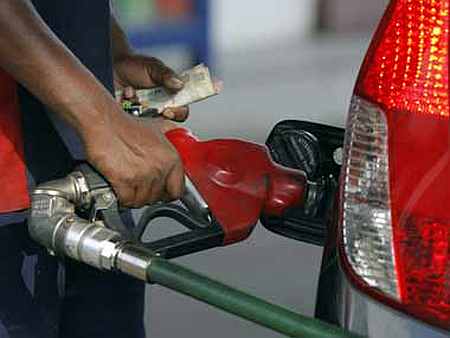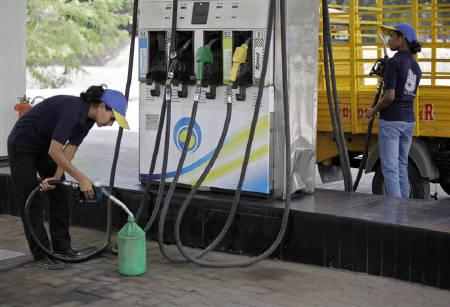Photographs: Reuters Vrishti Beniwal in New Delhi
The government is preparing to bite the bullet, with partial decontrol of diesel prices after the Presidential election on July 19.
Prime Minister Manmohan Singh, also handling the finance portfolio, is considering a slew of measures to trim the huge fiscal and current account deficits.
Officials say fuel price reforms are inevitable and a decision could be taken any time after the election of the new President.
...
Partial diesel decontrol expected after Prez poll
Photographs: Danish Siddiqui/Reuters
The government is weighing various options, including fixing subsidies on a per-litre basis, an increase in diesel prices by a few rupees, freeing prices of the commodity completely or giving targeted subsidies.
However, at the moment, it is expected to go ahead with partial decontrol of fuel prices, whereby the subsidy would be fixed per litre.
An inter-ministerial group on inflation, headed by chief economic advisor Kaushik Basu, is preparing a report detailing the mechanism. A final call will be taken by the PMO in consultation with the petroleum and finance ministries.
...
Partial diesel decontrol expected after Prez poll
Photographs: Reuters
The Economic Survey, authored by a team headed by Basu, had advocated a fixed subsidy on every litre of diesel sold by an oil marketing company as an interim measure before full price decontrol.
A reduction in LPG subsidy, fertiliser and urea reforms, opening of multi-brand retail for foreign direct investment, raising the FDI cap in insurance, pension reforms and a disinvestment programme are also on the agenda.
Officials say with Singh at the helm of the finance ministry, the government is working towards a political consensus to ensure the proposals don't get struck down or held up as happened in the case of multi-brand retail FDI.
...
Partial diesel decontrol expected after Prez poll
Photographs: Reuters
"The sequencing of all these measures would be crucial as these would reinforce each other... Bringing in more FDI into the country would help stabilise the rupee and reduce the current account deficit," an official said.
He added more foreign flows would improve the market conditions and enable the government to go ahead with its disinvestment programme.
The measures are aimed at restricting the fiscal deficit to 5.1 per cent of Gross Domestic Product (GDP) as budgeted. The ministry has also projected subsidies below two per cent of GDP in 2012-13.
...
Partial diesel decontrol expected after Prez poll
Photographs: Rupak De Chowdhuri/Reuters
Officials say small expenditure-cutting measures would not be of much help in reducing the fiscal deficit.
The deficit has crossed 27 per cent of the Budget estimate of Rs 5.13 lakh crore in the first two months of the current financial year.
A steep rise in the import bill due to oil and gold imports pushed India's current account deficit to its highest ever level of $78.2 billion or 4.2 per cent of GDP during 2011-12, against $46 billion (2.7 per cent of GDP) in the previous year.







article